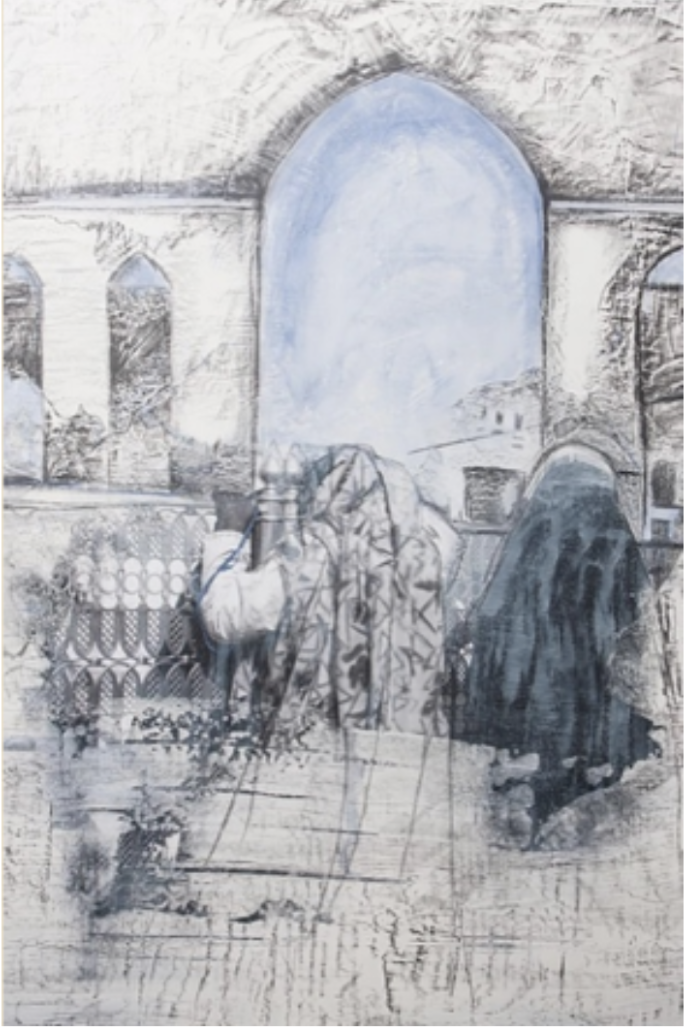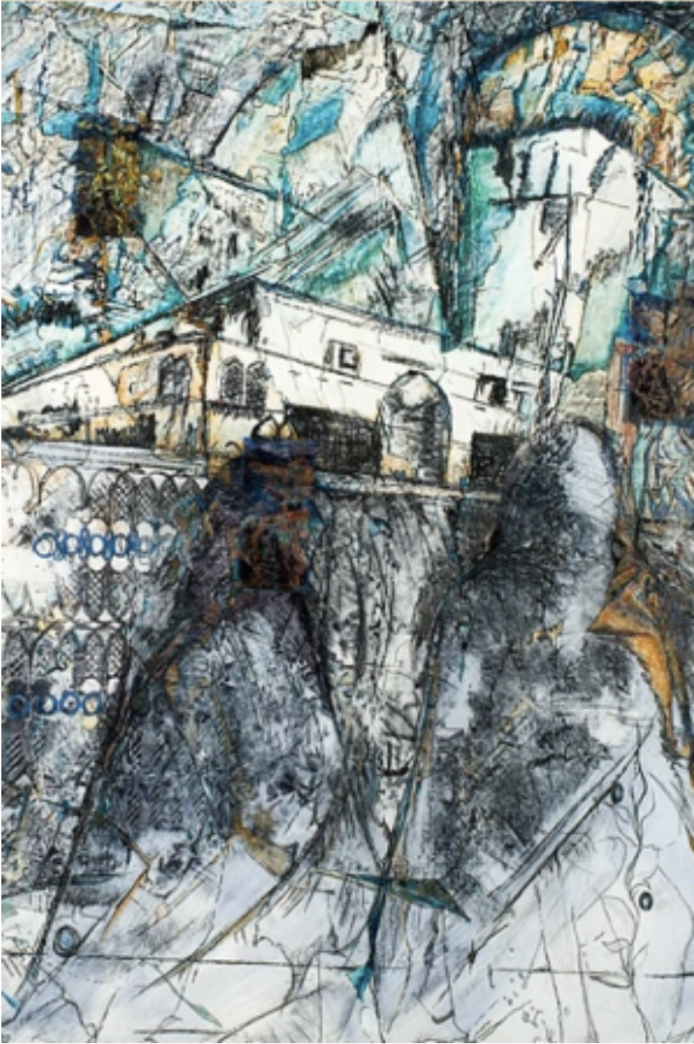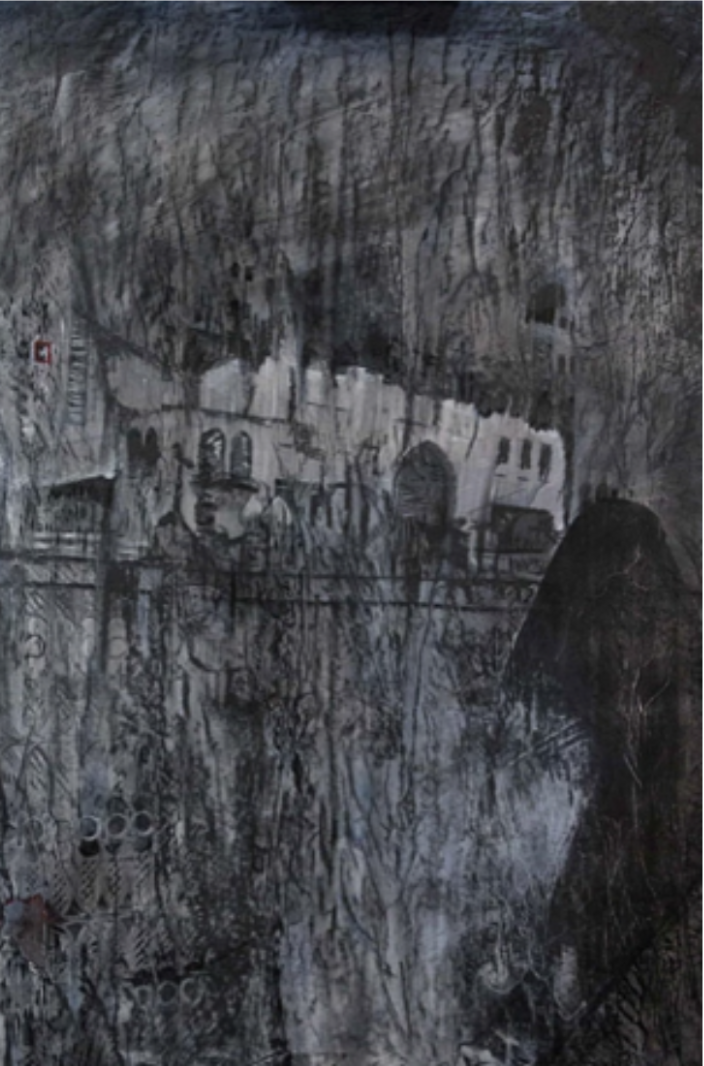Dear Friends,
This morning at 7am, I hit the send button and submitted the first complete draft of my Doctor of Ministry Thesis from General Theological Seminary for review. Why Church?: Understanding how the next generation perceives the purpose of the Church. I conclude my thesis with a reflection on an art exhibit currently on display at the Bainbridge Art Gallery. This reflection is an edited version of my thesis conclusion.
While looking at the paintings, I was fortunate enough to meet one of the artists, Khalilah Sabree. Sabree was born in Macon, Georgia, and raised as a Southern Baptist, who, after moving north to Trenton, New Jersey, converted and became a devout African-American Muslim. In describing her collection of paintings, Destruction of a Culture, Sabree says,
I explore how devastating changes disrupt world cultures and impact human relationships, societal structures, and the global landscape…The series began with a single image: a photo I took in Mecca of two African women gazing over a fence, as if peering into the future. The intensity of their focus captivated me; I envisioned them as bearers of a unique power able to foresee a changing world that remains hidden from others. As this photo became a series of paintings, imagination was my guiding force. I engaged in dhikr, allowing the remembrance of God to infuse my work with spiritual depth and resonance.
In conversation, Sabree shared with me that within the intensity, struggle, destruction, and truth of each painting, she intentionally put an element in clear focus, which was to draw our attention and invite us to enter into a place of spiritual refuge - a portal through which we could find safety and rest.
When Things Fall Apart Breaking Point Lost
https://www.khalilahsabree.com/destruction-of-a-culture
Later that evening, I learned of yet another death of a Princeton University student. This is the eighth Princeton University student in three years to commit suicide. Princeton is supposed to be Mecca, the Promised Land, the pinnacle of the American Dream – an Ivy League university and one of the premier universities in the world. Yet with all the resources, student services, people, professors, programs, opportunities, buildings, money, reputation, and connections … eight young people in the last three years have been unable to find a safe refuge, a portal through which they could find safety and rest. They felt the only way forward, the only way to survive was to die.
We live in a world that could be described as the destruction of a culture, and this isn’t creative destruction; it’s just destruction. Destruction of our environment. Destruction of opportunities because of economic disparity and unequal access to resources. Destruction of dignity and our humanity by acts of racism, xenophobia, transphobia, and simply plain old hate and indifference. Destruction comes in all shapes and sizes - sometimes vengeful and violent, harsh and arrogant, brash and bold, external and obvious, and other times internal and soulful, emotional and relational, hidden and subtle, deceptive and disguised, yet just as destructive.
There is a tremendous calling and need right before our eyes. There is a world of people, young and old alike, longing for a portal through which they can travel and find a place of refuge - a place of safety and rest from a world that can be daunting, damning, and destructive. I believe our primary calling as the people of Trinity Church is to show the way to the portal through which people can find rest, healing, and hope – in other words, salvation. God save us from ourselves - from our sin and arrogance, pride and ego, misguided pursuits and blindness, insecurities and vanities. The Church only survives if we do – and far too many people have no idea that the Love of God, as revealed to us in Jesus Christ, is a portal through which we find more than a place of refuge; we find life - life in the fullness of God’s intention for all of God’s beloved children.
Peace and Blessings,
“The place God calls [us] to is the place where [our] deep gladness and the world’s deep hunger meet.”




